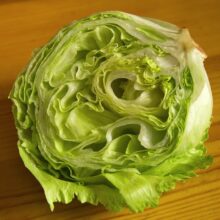The Science of Weight Loss: Separating Fact from Fiction
The Science of Weight Loss: Separating Fact from Fiction
Losing weight is a daunting task for many of us. With so much misinformation and contradictory advice floating around, it’s no wonder that many of us are left feeling confused and frustrated. But don’t worry, we’re here to help you separate fact from fiction and provide you with the facts about the science of weight loss.
Avoid Fad Diets and Quick Fixes
Let’s face it, we’ve all fallen prey to the temptation of appealing weight loss ads and promises of “miracle” diets that guarantee rapid results. But the truth is, there is no shortcut to sustainable weight loss. A well-planned and evidence-based approach is always the best way to achieve and maintain a healthy weight.
The science suggests that crash dieting can actually harm your overall health by leading to a slowed metabolism, loss of muscle mass, and a higher risk of chronic diseases. Instead, focus on making sustainable lifestyle changes that you can maintain for the long haul.
The Importance of a Calorie Deficit
Calorie control is a fundamental principle of weight loss. To lose weight, you need to create a calorie deficit by eating fewer calories than your body burns. This can be achieved through a combination of reducing your daily caloric intake, increasing your physical activity, or a combination of both.
It’s essential to note that a calorie deficit is just that – a deficit. It’s not about starving yourself or cutting out entire food groups. Aim for a balanced diet that includes a variety of whole, unprocessed foods, and make sure to stay hydrated by drinking plenty of water throughout the day.
The Power of Macronutrients
Macronutrients – carbohydrates, protein, and fat – play a crucial role in weight loss. Protein, in particular, has been shown to be an effective tool in helping to maintain muscle mass and boost metabolism.
A well-balanced diet should include a mix of complex carbohydrates, lean protein sources, and healthy fats. Don’t be afraid to get creative with your meals, and don’t worry about cutting out entire food groups. Enjoy your food, and make sure to savor every bite!
The Science of Hunger and Fullness
Ever noticed how some people can eat a whole pizza by themselves and still have room for dessert, while others get full after just a few bites? It’s not just about willpower – it’s about the science of hunger and fullness.
The hormone ghrelin regulates hunger, while leptin regulates fullness. When you eat, ghrelin levels increase, signaling your body that it’s time to eat. As you finish your meal, leptin levels rise, signaling that you’re full. The key to weight loss is finding the sweet spot – the point at which you’re satisfied, but not stuffed.
Exercise: More Than Just Burning Calories
Exercise is an essential component of any weight loss journey. But it’s not just about burning those pesky calories – it’s about so much more. Regular exercise has been shown to boost metabolism, improve insulin sensitivity, and even reduce stress levels.
Aim for a mix of cardio, strength training, and high-intensity interval training (HIIT) to keep things interesting and ensure you’re challenging your body in different ways. And remember, the more you exercise, the more your body will adapt – so be sure to vary your routine to avoid plateaus.
The Final Verdict
The science of weight loss is complex, but one thing is clear: there’s no one-size-fits-all solution. It’s all about making sustainable, evidence-based choices that focus on long-term results, not quick fixes. By prioritizing a balanced diet, getting regular exercise, and making smart lifestyle choices, you’ll be well on your way to a healthier, happier you.
Remember, losing weight is just the beginning – it’s about finding a lifestyle that you can maintain, and even thrive in, for years to come. So, take a deep breath, separate fact from fiction, and get ready to embark on the journey to a healthier, happier you.





